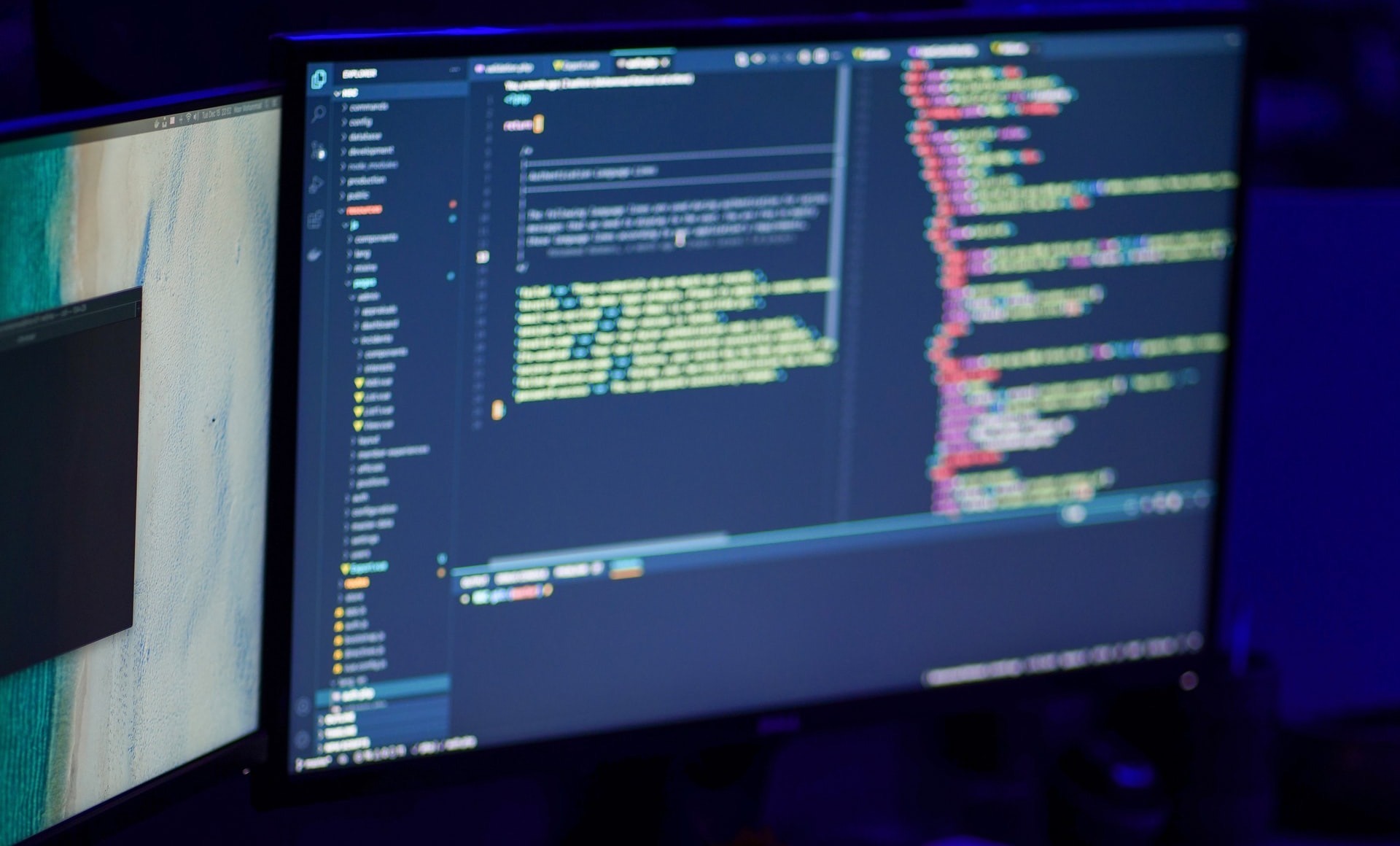Table of Contents
Kambu developers recently met for a half-day Docker Workshop covering topics from how to set up a Docker image to Docker Compose fundamentals. In this blog post, we will share insights about the motivation behind organizing the Docker workshop and how the experience was.
Recap: What is Docker?
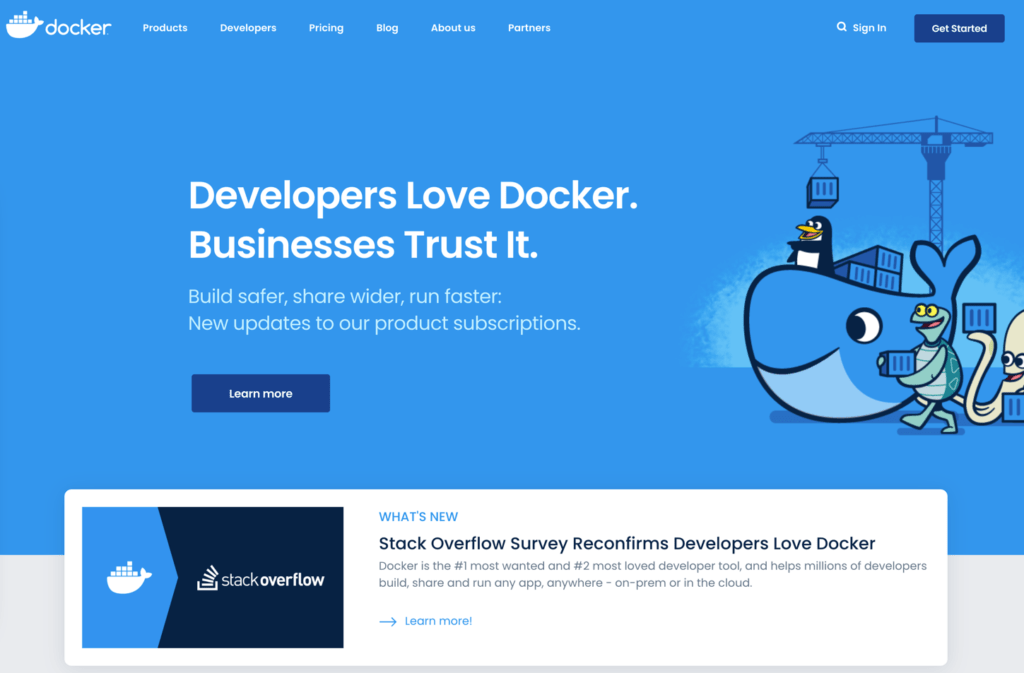
Docker refers to a suite of software that allows for running applications in somewhat isolated environments called containers. Containers are light and self-sufficient, carrying everything an application needs to run, from code to libraries.
When used properly, containers are a core tool in the enablement of continuous delivery, speeding up testing and deployment.
There are alternative containerization software in the market, but currently, Docker is the de facto leader.
You can run an application with multiple containers at the same time, in a process called orchestration. Some well-known orchestration tools are Kubernetes and… Docker again – Docker Compose when deploying to a single host and Docker swarm in the case of multiple hosts.
Similar to virtual machines, containers are a part of virtualization. Read more about the differences between containers and virtual machines.
The Kambu Docker Introduction Workshop
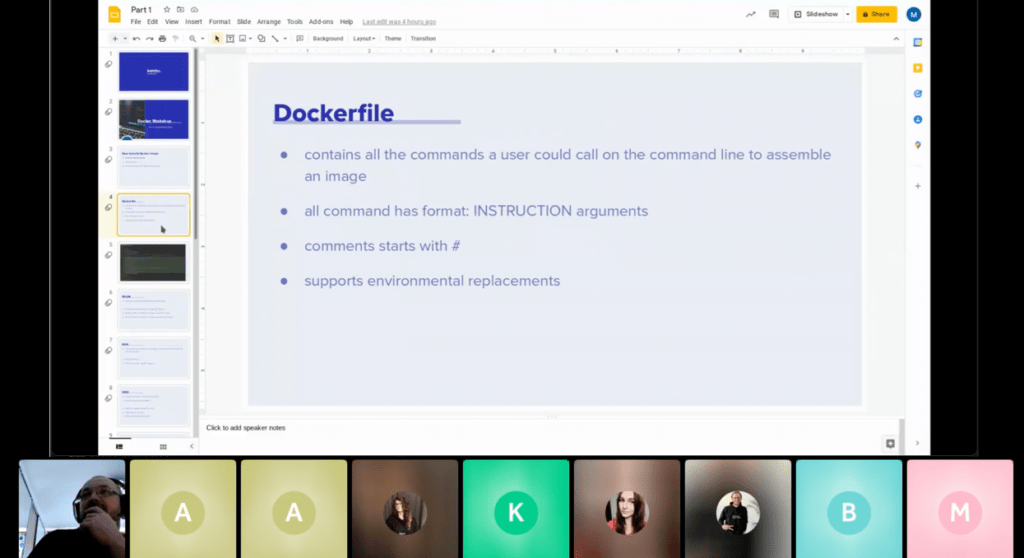
In total, 13 Kambu developers gathered up online to learn more or refresh their knowledge about Docker. By the end, they were ready to build Docker images by themselves and use said images inside Docker Compose files, explains Marcin, .NET team leader and host of the event.
He divided the day into two segments: Docker and Docker Compose, sweetening the theoretical content with exercises.
Between slides and live demonstration, the team worked on exercises he prepared beforehand.
Why a Hold Docker Workshop?
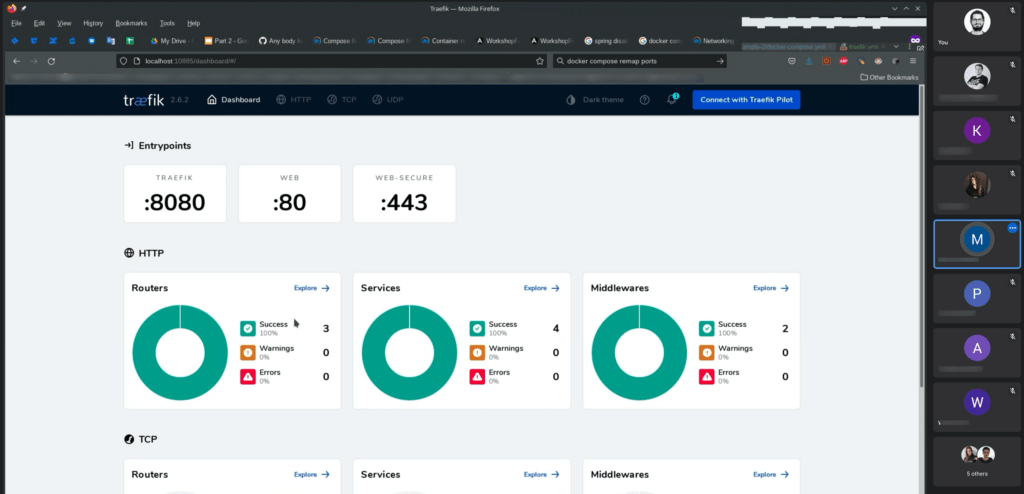
Among so many tech topics to explore, why Docker? Almost every application in Kambu uses Docker in some capacity, so the workshop is sure to generate immediate benefits.
Angelika, DevOps at Kambu, says it all: “I think every DevOps should be familiar with virtualization, as currently, almost all companies have cloud environments.”
The Frontend Team Leader Kamil encouraged his team to participate, even though the Backend team usually handles the creation of images. When asked why to learn a skill that might not be directly useful, Kamil’s answer reveals a love for curiosity:
“It is always nice to understand the tools you are using. You don’t have to master them, but when you have the opportunity to learn something new and related to your work, why not?”
It is always nice to understand the tools you are using. You don’t have to master them, but when you have the opportunity to learn something new and related to your work, why not?
Internal Feedback
Our internal survey revealed that the workshop was very successful, with a 4.5/5 score. The host Marcin even received a “superb knowledge” compliment.
Some positive highlights included: providing an organized repo with examples, as well as readme files for each exercise.
And aspects to improve: prepare more resources and open it up more for interaction.
Conclusion and Next Steps
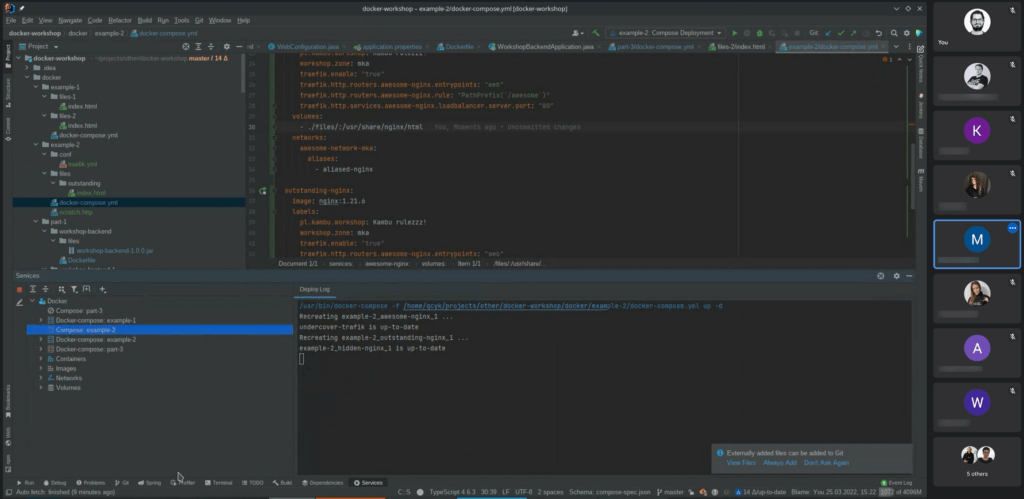
Internal workshops have been a very interesting way for the team to not only learn, but exchange ideas and talk about practical day-to-day challenges. The main takeaway: focusing is very important.
“With workshops, we can plan one longer learning session together and share knowledge with our teammates. It’s much easier than learning something on daily basis,” says Marcin.
So, it’s natural: we are investing more energy into workshops and other ways of making the act of sharing knowledge as easy as possible.
Check out the previous workshops:
